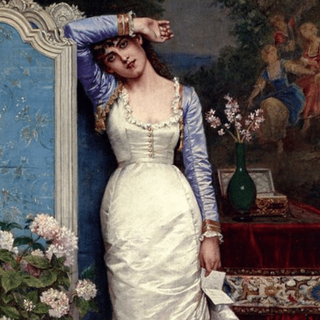A new study has found that people are more likely to associate the trait of ‘brilliance’ with men over women. While the stereotype is broadly known to exist, the researchers were also trying to ascertain the extent of this bias.
Published in the Journal of Experimental Social Psychology, the study involved 3,618 participants from from 78 countries, and found consistent evidence for an implicit gender-brilliance stereotype favoring men. The participants included both men and women, as well as children between the ages of nine and ten — and 70 percent of them subscribed to the stereotype.
Interestingly, most of the participants were reluctant to admit to the bias when questioned directly. So, the researchers exposed them to a series of implicit association tests, or a speed-sorting task that seeks to capture the automatic associations that people make between certain traits and certain groups of people. After repeated tests, the team found the implicit existence of the stereotype across demographics. “Implicit measures reveal a different story about the more automatic gender stereotypes that come to mind when thinking about brilliance,” the researchers said. “This pervasive implicit association of brilliance with men is likely to hold women back in careers perceived to require brilliance,” the study noted.
Related on The Swaddle:
Working Mothers Get 1/3 of the Uninterrupted Paid Work Hours as Fathers Under Lockdown
In fact, a previous study, where participants were asked to refer individuals for a job, found that if participants were led to believe that the job required high-level intellectual abilities, they were 38.3 percent less likely to refer women. Yet another study had found that fields, where in-born intellectual abilities are prized over hard work, produced relatively fewer female doctoral fellows. “In our current cultural climate, where women are, stereotypically, seen as less likely to possess special intellectual gifts, emphasizing that those gifts are required for success is going to have a differential effect on men and women,” Andrei Cimpian, a psychologist at the University of Illinois, Urbana-Champaign, had said in 2015.
For every 100 men promoted and hired to a manager position, only 72 women are promoted and hired for the same role, a 2019 study by McKinsey & Company had found. “Men are typically hired based on potential and what we believe they can do, while women are typically hired and promoted based on what they’ve already accomplished. We know that performance bias — or this belief that men are slightly more capable or competent than they are, and that women are slightly less capable and competent than they are — is so pervasive that it impacts our decision-making,” Rachel Thomas, Co-founder and CEO of Lean In, told CNBC.
Related on The Swaddle:
Study: People Find Women Wearing Make‑up More Trustworthy
“We have written so many female geniuses out of history, they just don’t come to mind as easily. The result is when ‘brilliance’ is considered a requirement for a job, what is really meant is ‘a penis.’ We just don’t see women as naturally brilliant,” Caroline Criado Perez wrote in her book titled Invisible Women: Exposing Data Bias In A World Designed For Men.
Even in India, girls have consistently outperformed boys in board exams across the country for decades. And yet, when it comes to interactive college classes, women participate less than their male counterparts due to a fear of peer judgment stemming from stereotypes like the gender-brilliance bias, and other existing gender stereotypes propagated by society. When translated into workplace scenarios, this fear of judgment can further hurt gender parity by preventing women from expressing their opinions or being assertive.
This research is especially pertinent at a time when female workers are facing a disproportionate number job cuts due to the Covid19-prompted economic crisis, compared to men. Even before the pandemic struck, the World Economic Forum had predicted in the Global Gender Gap Report 2020 that: “None of us will see gender parity in our lifetimes, and nor likely will many of our children.” With the existence of this pervasive gender-brilliance bias even in 2020, coupled with Covid19, the future of gender parity in workplaces seems even more bleak.




